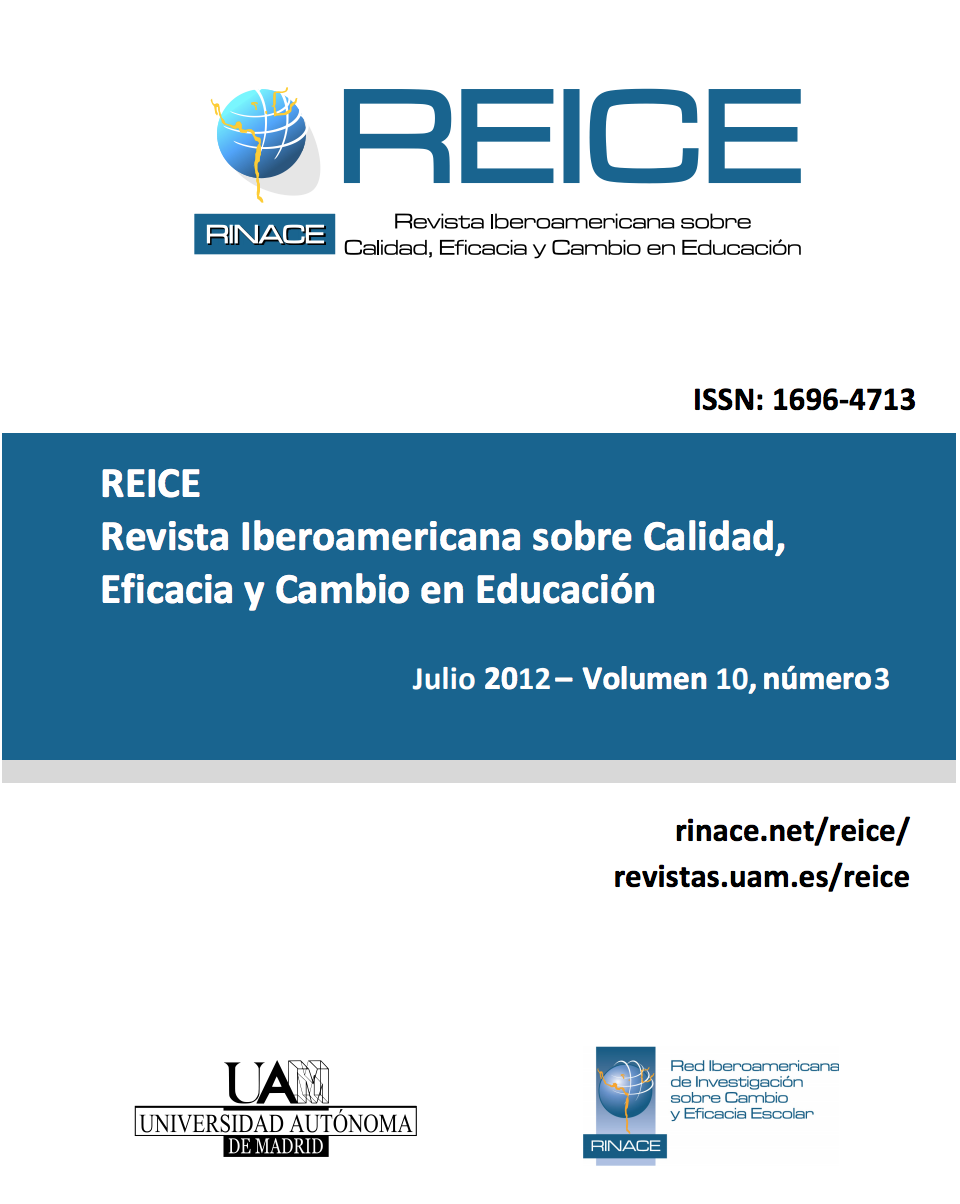Keywords:
Migration, family and school environment, loneliness, emotional behaviorCopyright (c) 2016 REICE. Revista Iberoamericana sobre Calidad, Eficacia y Cambio en Educación

This work is licensed under a Creative Commons Attribution-NonCommercial-NoDerivatives 4.0 International License.
Abstract
This work focuses on a comparative analysis of the incidence of migration of one of the parents in the dynamic of the family. Particularly we analyzed the relations, emotional and scholar ones, of children who remain in their country of origin compared to children living with their parents. The analysis was performed using a mixed approach, which aims to provide quantitative results with qualitative variables. Data were collected through surveys applied in the Imbabura and El Carchi provinces during 2010. This research can conclude that migration influences children behavioral aspects that lead to change children's relationships, that modified the relation of children with their family and school environment.
Downloads
References
Aristóteles (2003). Ética Nicomaquéa. Ética Eudemia. Madrid: Gredos.
Castells, M. (2003) La galaxia Internet. Barcelona: Actualidad.
Colás Bravo, P. (2002). La investigación educativa en la (nueva) cultura científica de la sociedad del conocimiento. XXI - Revista Educación, 4, 77-93. Recuperado de http://www.uhu.es/publicaciones/ojs/index.php/xxi/article/view/623/958
DIEJ- Diagnóstico de la Investigación Educativa en Jalisco (2009). La producción de conocimiento científico educativo desde la perspectiva de la cultura. Recuperado de http://www.utj.edu.mx/investigacion/archivos/Anexo%201%20Avance.pdf
Gibbons, M., Limoges, C., Nowotny, H., Schwartzman, S., Scott, P. y Trow, M. (1997). La nueva producción del conocimiento. Madrid: Pomares.
Grossetti, M. (2007) Reflexiones sobre la noción de red. Redes, 12(25), 85-108.
Kreimer, P. (2003).Conocimientos científicos y utilidad social . Ciencia, docencia y tecnología, (26). Recuperado del sitio http://www.revistacdyt.uner.edu.ar/articulos/descargas/cdt26_kreimer.htm
Lamo, E. (1987). El estatuto teórico de la sociología del conocimiento. Revista Española de Investigaciones Sociológicas, (40), 7-44. Recuperado del sitio http://reis.cis.es/REISWeb/PDF/REIS_040_03.pdf
Latour, B. (1992). Ciencia en Acción, Cómo seguir a los científicos e ingenieros a través de la sociedad. Barcelona: Labor
Latour, B. (febrero, 2010). Networks, Societies, Spheres: Reflections of an Actor-network Theorist. Keynote speech presentada en el International Seminar on Network Theory: Network Multidimensionality in the Digital Age, Los Angeles, CA. Recuperado de http://www.bruno-latour.fr/articles/article/121-CASTELLS.pdf.
Luna, M. y Velasco J. (2006). Redes de conocimiento: principios de coordinación y mecanismos de integración. En M. Albornoz y C. Alfaraz (Eds.), Redes de conocimiento: construcción, dinámica y gestión (pp. 13-36). Paris: RICYT / CYTED / UNESCO.
Merton, R.K. (1945). The Sociology of Knowledge. En G. Gurvitch y W. Moore (Eds.), Twentieth Century Sociology (pp. 366-405). Nueva York: The Philosophical Library.
Merton, R.K. (1964). Teoría y estructura sociales, México: FCE.
Morin, E. (1981). Para salir del siglo XX. Barcelona: Kairos.
Nuzzaci, A. (2007). For a community of the European educational research. Revista Complutense de Educación, 18(1), 217-232.
Rey-Rocha, J., Martín Sempere, M.J. y Sebastián, J. (2008) Estructura y dinámica de los grupos de investigación. Arbor, Ciencia, Pensamiento y Cultura, (732), 743-757.
